Suha usta nastanejo, ko žleze, ki proizvajajo slino v ustni votlini le-te ne proizvedejo v dovoljšnji količini. Pogosto je to stanje posledica izrazite dehidracije, kar pomeni, da primanjkuje telesnih tekočin v organizmu. To je stanje, ki ponavadi ne rezultira le kot težava suhih ust ampak ima pomanjkanje tekočin lahko za posledico tudi druge zdravstvene težave.
SUHA USTA: Kaj so suha usta? | Vzroki suhih ust | Simptomi | Zdravniška pomoč | ZDRAVLJENJE suhosti ust | ZDRAVLJENJE doma | Sjögrenov sindrom | Vprašanja in odgovori | Viri/reference
Suha usta ali s tujko kserostomija je stanje, pri katerem vaše žleze slinavke ne uspejo proizvesti dovolj sline, da bi vaša usta ostala vlažna. Pogost vzrok suhih ust je neželeni učinek zdravila, s staranjem povezana zdravstvena stanja ali posledica zdravljenje raka v kombinaciji z obsevanjem. Manj pogosto je lahko motnja suhih ust posledica neposredno prizadetih žlez slinavk.
Video vsebina: Suha usta - vzroki in zdravljenje kserostomije (suha usta)

Z nevtralizacijo kislin, ki jih proizvajajo bakterije, zaviranjem razvoja bakterij in izpiranjem delcev hrane, slina pomaga preprečevati karies. Poleg tega slina izboljša zaznavanje okusa in olajša žvečenje in požiranje. Slina vsebuje tudi encime, ki pomagajo pri prebavi, zato je njena prisotnost v ustni votlini v dovoljšnjih količinah ključnega pomena.
Zmanjšano izločanje sline in suha usta lahko pomembno vplivata na vaše splošno zdravje organizma, zdravje zob in dlesni ter apetit in posledično užitek ob prehranjevanju. Zdravljenje suhih ust je venomer odvisno od vzroka.
Običajno je, da imate občasno suha usta, če ste dehidrirani ali živčni, toda vztrajno suha usta so lahko znak resnejše zdravstvene težave. Če imate neobičajno suha usta dlje časa, se morate nujnio posvetovati z zobozdravnikom ali splošnim zdravnikom, da boste lahko ugotovil vzrok te težave.
Kaj lahko povzroča suha usta?
Dehidracija je pogost vzrok za problem suhih ust, ker telesu preprečuje, da bi proizvedlo potrebno količino sline.
Obstaja več osnovnih težav ali zdravstvenih stanj, ki lahko prispevajo k suhi ustni votlini, vključno z:
- zdravili – suha usta so pogost neželeni učinek številnih zdravil na recept kot tudi brez recepta, največja težava so pogosto zdravila za zdravljenje depresije, anksioznosti, bolečine, alergij in prehladov (uporabljeni antihistaminiki in dekongestivi), debelosti, aken, epilepsije, hipertenzije (diuretiki), driske, slabosti, psihotičnih motenj, urinske inkontinence, astme (nekateri bronhodilatatorji) in Parkinsonove bolezni. Suha usta so lahko tudi stranski učinek uporabe mišičnih relaksantov in pomirjeval.
- zamašenim nosom – dihanje skozi usta med spanjem ponavadi zelo pogosto povzroči izsušitev ustne votline.
Video vsebina: kaj povzroča nastanek suhih ust?

- sladkorno boleznijo – diabetes ali sladkorna bolezen je vseživljenjsko stanje, ki povzroči previsoko raven sladkorja v krvi osebe.
- radioterapijo glave in vratu – tvrstna obsevanja rakavih obolenj lahko povzročijo vnetje žlez slinavk (mukozitis).
- dehidracijo - stanja, ki vodijo v dehidracijo, kot so vročina, čezmerno znojenje, bruhanje, driska, izguba krvi in opekline, lahko povzročijo suha usta.
- poškodbo živcev - suha usta so lahko posledica poškodbe živcev v predelu glave in vratu zaradi fizične travme ali operacije.
- stranskimi učinki nekaterih bolezni in okužb - suha usta so lahko stranski učinek zdravstvenih stanj, vključno s Sjögrenovim sindromom, HIV/aidsom, Alzheimerjevo boleznijo, sladkorno boleznijo, anemijo, cistično fibrozo, revmatoidnim artritisom, hipertenzijo, Parkinsonovo boleznijo, možgansko kapjo in mumpsom.
Simptomi - suha usta lahko povzročijo različne težave
Za ohranjanje zdravja vaših ust je potrebna slina.

Pomembno je, da vzdržujete dobro ustno higieno, če imate suha usta, da posledično zmanjšate tveganje za težave z zobmi. Redno obiskujte tudi zobozdravnika, da bo lahko zgodaj prepoznal in pozdravil morebitne težave.
Če imate suha usta, se lahko prav tako soočate z različnimi dodatnimi težavami, kot so:
- pekoč občutek ali bolečina v ustih
- suha ustnica
- slab zadah (halitoza)
- zmanjšan ali spremenjen občutek okusa
- ponavljajoče se okužbe ustne votline, kot so afte
- zobna gniloba in bolezni dlesni
- težave z govorom, jedjo ali požiranjem
Kdaj je potreben obisk zdravnika
Obisk pri osebnem zdravniku je smiselen, ko se soočate z dlje časa trajajočo težavo suhih ust. Če trpite za dlje časa trajajočo kserostomijo je to gotovo razlog, da čimprej zahtevate zdravniško pomoč - suha usta so namreč lahko posledica druge bolezni, zato je čimprejšnja diagnostika ključnega pomena.
Zdravljenje suhih ust
Če lahko vaš zdravnik ali zobozdravnik prepozna in zdravi vir suhih ust, se lahko vaši simptomi izboljšajo.
Video vsebina: dejstva in zdravljenje suhih ust

Če se domneva, da je zdravilo vzrok za vaša suha usta, vam bo zdravnik morda zmanjšal odmerek ali svetoval, da poskusite z drugim zdravilom.
Kako si lahko pomagate sami?
Obstajajo preprosti ukrepi, s katerimi lahko pomagate ohranjati vaša usta vlažna:
- povečajte vnos tekočine – redno pijte mrzlo vodo ali nesladkano pijačo
Video vsebina: kako si pomagati, ko imate suha usta?

- žvečite žvečilni gumi brez sladkorja – to ponavadi vzpodbudi žleze slinavke, da proizvedejo več sline
- ližite ledene kocke – led se bo počasi stopil in vam navlažil usta
Video vsebina: kako rešiti problem s suhimi usti in suhimi ustnicami takoj ko se zbudite?

- izogibajte se alkoholu (vključno z ustnimi vodicami na osnovi alkohola), kofeinu in kajenju – vse to namreč še poslabša stanje suhih ust
Nadomestki sline in stimulansi
Če zgornji ukrepi ne pomagajo, vam bo zobozdravnik, splošni zdravnik ali specialist morda predlagal uporabo umetnega nadomestka za slino, da bodo vaša usta ostala vlažna. Izdelek je lahko v obliki pršila, gela ali pastil. Uporabljajte ga tako pogosto, kot je potrebno, tudi pred in celo med obroki - če je to mogoče.
Če so vaša suha usta posledica radioterapije ali Sjögrenovega sindroma, vam specialist lahko predpiše zdravilo, imenovano pilokarpin. Vendar pa omenjeno zdravilo ni primerno za vsakogar, saj lahko povzroči neželene učinke, kot sta znojenje ali glavobol.
Sjögrenov sindrom in suha usta
Sjögrenov sindrom je avtoimunska bolezen, pri kateri imunski sistem napade lastne tkivne celice. Glavni simptomi te bolezni so suhost ust in oči ter posledično utrujenost, bolečine v sklepih (revmatoidni artritis) in mišicah ter lupus.
Sjögrenov sindrom lahko povzroči več zapletov, vključno s sindromom vidne izgorelosti, revmatičnim vnetjem sklepov, bolečino v prsih, težavami z dihali ter problemi vaginalne suhosti.
Video vsebina: Sjögrenov sindrom - znaki in simptomi

Zdravljenje Sjögrenovega sindroma je pogosto zapleteno, saj je nujno prilagajanje terapije glede na opažene simptome in posameznikove potrebe. Zdravljenje z zdravili lahko vključuje zdravila, ki pomagajo pri lajšanju suhosti sluznic, ter nudijo pomoč pri nadzoru imunskega sistema.
Tudi ustreznejša hrana lahko pomaga pri lajšanju simptomov, zato je priporočljivo, da oboleli za to boleznijo izbirajo hrano, ki je bogata z vitamini in minerali. Telesna vadba lahko pomaga pri olajšanju bolečin in utrujenosti organizma ter pomaga pri izboljšanju splošnega počutja.
Terapija za pomoč pri stresu lahko pomaga pri spopadanju z vsakodnevnimi izzivi in stresom, ki ga doživljete in so zelo pogosta težava s katero se soočajo bolniki s Sjögrenovim sindromom.
Sprememba življenjskega sloga lahko vključuje tudi bivanje v toplejših podnebjih, izogibanje stresnim situacijam, vzdrževanje rednega ter kvalitetnega počitka in počitka.
Vprašanja in odgovori
Kateri so pogosti simptomi suhih ust?
Suha usta so lahko posledica nekaterih zdravstvenih stanj, kot so sladkorna bolezen, možganska kap, glivična okužba (soor) v ustih, Alzheimerjeva bolezen ali avtoimunske bolezni, kot je Sjögrenov sindrom ter HIV/aids.
Video vsebina: kakšni so simptomi zamašenih izvodil v ustih?

Smrčanje in dihanje z odprtimi usti lahko prav tako prispevata k suhim ustom, kot tudi redno kajenje in pitje alkohola[1].
Zakaj so moja usta tako suha, tudi če pijem vodo?
Nekatere motnje in stanja lahko povzročijo suha usta, vključno z anksioznostjo, stresom, depresijo, zdravljenjem raka in nekaterimi avtoimunskimi motnjami, kot je Sjogrenov sindrom tudi če pijete dovolj tekočine. Alzheimerjeva in Parkinsonova bolezen prav tako pogosto povzročita dehidracijo, kar posledično poveča tveganje za suha usta[2].
Ali problem suhost ust čez čas izgine?
Ko se zdravljenje tovrstnega problema konča, suha usta običajno izginejo. Stanja, ki prizadenejo žleze slinavke in povzročajo suha usta, kot je Sjögrenov sindrom, pa so običajno doživljenjska. Vsakdo lahko od časa do časa občuti suhost ust. Če se vam zdi, da so vaša usta prepogosto suha, je morda čas, da poiščete zdravniško pomoč[3].
Ali obstaja pomanjkanje določenega vitamina/minerala, kar lahko povzroči prekomerno suha usta?
Predvsem pomanjkanje vitamina A ali riboflavina lahko povzroči prekomerno suhost ust. Čeprav je stanje redko, je ob resnem pomanjkanju tega vitamina potrebno resneje pritopiti k problemu in ga rešiti v okviru zdravstvene oskrbe pod nadzorom zdravnika.
Viri in reference
Vir: Družinski zdravstveni vodnik. Konvencionalno in alternativno zdravljenje, Dr. Jajo Lajovic, Založba Mladinska knjiga
1. Dry mouth - https://www.mayoclinic.org
2. Why is My Mouth So Dry? Get Answers from Penn Dental Family Practice - https://mypenndentist.org
3. How long does dry mouth last? - https://www.sharecare.com

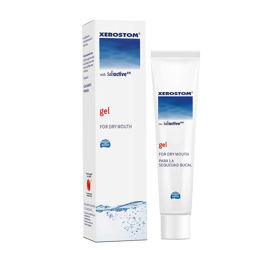
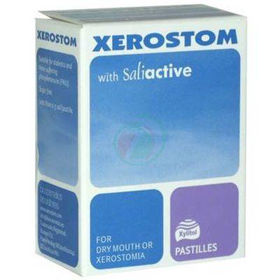
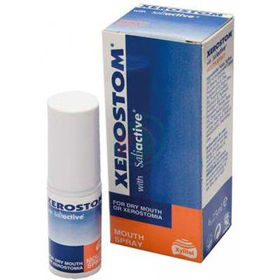
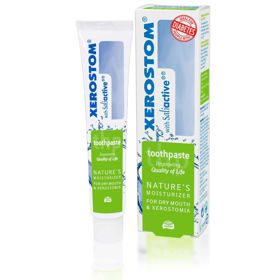

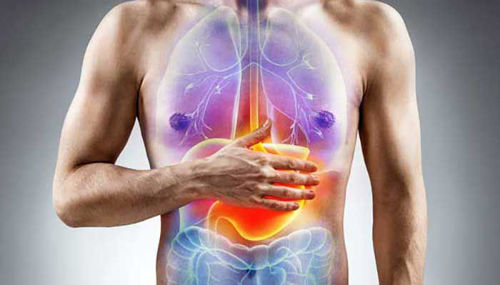

 Facebook
Facebook
 Instagram
Instagram
 info@moja-lekarna.com
info@moja-lekarna.com

